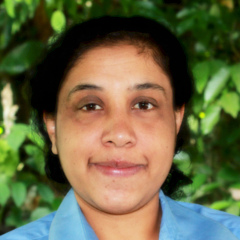ABC of Civil Services | Don't spoil your chances with wrong attitude

Mail This Article
A person appears in front of the UPSC interview board after a minimum period of one-year preparation clearing two gruelling stages of examination. The interview being the last stage of the selection process becomes crucial as the candidate is facing the interview board without knowing his/her main examination marks. Since the final selection is based on the aggregate of main and interview marks, everybody wants to deliver their best possible performance to cross the last hurdle. This situation creates a wide variety of reactions from the candidates.
Majority of the candidates are of course, nervous. They have concerns about the process as well as their performance. This is quite natural, but one should not get into a mood of desperation. The board can very well understand the mild apprehensions and generally put one into comfort. Normally the candidate warms up after the initial exchange of pleasantries and end up answering well. But if one pleads verbally, it will not be appreciated. If one is over-conscious to take a stand or state one’s opinion in order to avoid further probing, the board usually pull them out of their comfort zones. So, one should be confident and knowledgeable enough to opine on things in order to get a good mark in interview.
Rare cases
Though rare, there are people who are on the other side of the spectrum. They feel that having qualified for the personality test itself is a testimony of their brilliance and expect the board to treat them accordingly. I cannot forget a person, who complained about the board talking too much! He even said that the board was not asking the right kind of questions. Based on his “so called” achievements, he wanted a certain set of questions none of which came from the board which made him give a negative mark to them!
Another situation could be where a question of the interviewer triggers a sense of defensiveness on part of the candidate. Certain questions make people feel that they have to answer it by defending their profession, place of origin etc. The most peculiar answer I ever heard during a mock interview was given by a candidate to whom I asked about fans associations of movie stars in Tamil Nadu. His immediate reaction was “people are intelligent”! This perplexed me and when I asked for an explanation, he was unable to give one. After a day-long analysis, I somehow figured that he took offense of my question and actually want to retort that “do not think that we are not intelligent just because we have fans associations”. But since it was asked as part of interview, he mellowed down his feelings.
Essential quality
A sense of self assurance is essential for any candidate facing an interview board. One should be grateful for the opportunity to talk to five eminent seniors as part of the selection process. They are there to help the candidates to cross the last obstacle. Do not view them as the fielders of the opposition team who are ready to take a catch and get you out. Be confident that you can do well.
At the same time, do not expect too much of courtesy from a very busy interview board who interview an average 10 candidates a day for two months for the civil service examination. Concentrate on the questions and respond accordingly without being judgemental about the intentions of the board. Be polite and never pick up arguments.
All the above-mentioned shortfalls are a product of lack of faith in the fairness of the system. The result of civil service examination every year shows that people from every nook and corner of the country can be a winner and the UPSC does its job without fear and favour. So, do not spoil your chances with your wrong attitude.
(The author is a former IPS officer and a trainer for civil service aspirants)


